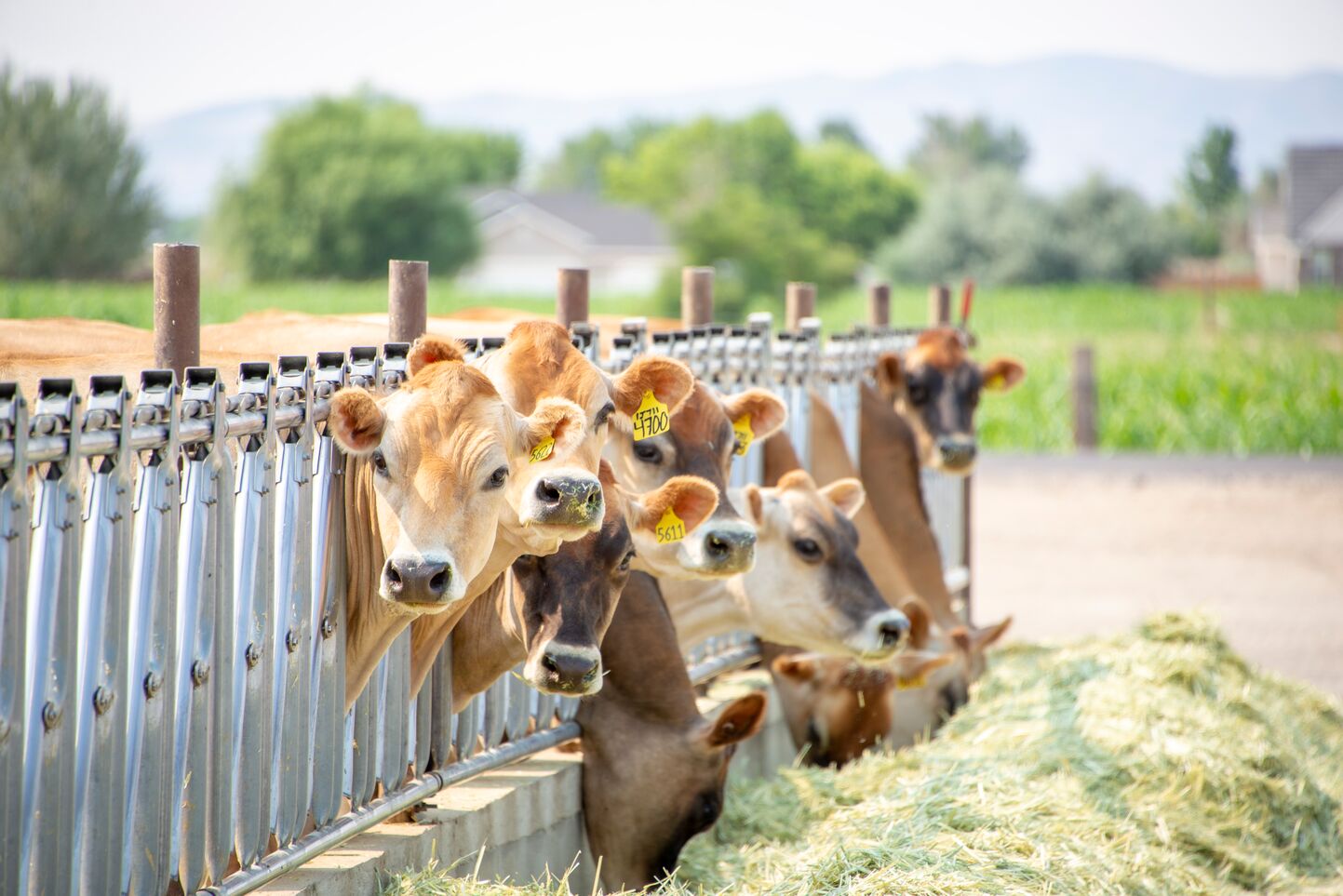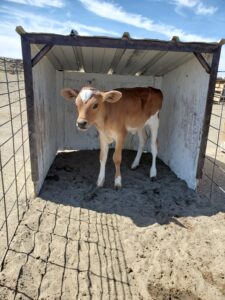Milk Production
Nevada is home to just over 20 dairy farms ranging in size from 500 cows to over 25,000 cows, and as a state ranks 32nd in milk production by volume. The region is excellent for growing forages and providing a dry, comfortable climate for dairy cows. Much of the fluid milk stays in Nevada — supplying 3 fluid milk plants and 1 milk powder plant. The milk powder produced in Nevada supplies high-quality protein to people all over the world. Though Nevada is a small milk-producing state — just 0.3% of the country’s total milk volume — it is a significant contributor to the local economy and can produce enough to supply its entire population with fluid milk.
Milk is among the most highly regulated foods in the country. Maintaining milk’s freshness and quality is a job that starts at the farm and continues through processing. Milk is picked up at dairy farms every day of the year and is shipped immediately to a processing plant where it is tested, pasteurized and bottled.
Learn About Nevada Dairy
Milk’s Journey from Farm to Table
Cow Care on the Farm
Milk Safety on the Farm
Dairy Processing on the Farm
Quality Begins at the Source
Farmers pay special attention to the diets and living conditions of their animals. Dairy farmers consult with cow nutritionists to design a well-balanced diet for their cows. Nutritious feed is the first step toward quality milk. Properly sanitized equipment and thorough cleaning of the cow’s udder before milking is equally important. As the cow is being milked, her milk flows through refrigerated pipes to a sanitized bulk tank where it is immediately cooled down from her body temperature — about 100 degrees F — to 38-45 degrees F. This preserves freshness and guarantees safety. The milk is then picked up by a milk truck, which serves as a giant refrigerator on wheels.
“Farming isn’t a job, it’s a lifestyle that requires strong commitment and dedication. It’s hard work, but we love supporting our families, the community and the world with a great product. We can’t think of anything else that we would rather do.”
Rigorous Testing
Before milk leaves the farm, the truck driver takes a sample of milk to test for impurities, such as antibiotic residues. If any impurities are detected, the entire tank of milk is immediately discarded, never to reach Nevada families. The milk is tested again when it get to the processing plant, and multiple times throughout processing. Milk is separated into different fat levels, bottled, then back out the door and off to the store.
The Economic Impact of Dairy
The dairy industry creates jobs, increases GDP, and has an overall positive impact on the US economy.
Additionally, the dairy industry in Nevada reaches local and international consumers, positively impacting the economy of the state itself.
Routine Inspection
Inspectors from state regulatory agencies and milk processing plants make surprise visits to farms on a regular basis. These unannounced visits are just one more set of checks and balances to make sure animal living conditions are clean, milking equipment is being properly sanitized and the facilities in general provide a safe working environment for all.
Milk Production
Nevada is home to just over 20 dairy farms ranging in size from 500 cows to over 25,000 cows, and as a state ranks 32nd in milk production by volume. The region is excellent for growing forages and providing a dry, comfortable climate for dairy cows. Much of the fluid milk stays in Nevada — supplying 3 fluid milk plants and 1 milk powder plant. The milk powder produced in Nevada supplies high-quality protein to people all over the world. Though Nevada is a small milk-producing state — just 0.3% of the country’s total milk volume — it is a significant contributor to the local economy and can produce enough to supply its entire population with fluid milk.
Milk is among the most highly regulated foods in the country. Maintaining milk’s freshness and quality is a job that starts at the farm and continues through processing. Milk is picked up at dairy farms every day of the year and is shipped immediately to a processing plant where it is tested, pasteurized and bottled.



